The 19th-century-born mom takes it in until the daughter says, "both boys got beautifully shellacked." Mom interrupts, "I don't understand," and the daughter elaborates, "jammed," flapper slang for inebriated, along with "balonied, pie-eyed, piffled, shot, canned, out like a light, stewed to the hat, potted, jiggered, and tanked."35
Alcohol prohibition was as much a failure during the flapper era as modern efforts to eliminate drugs such as cocaine, heroin, and marijuana are today, and the abundance of slang words people had for booze and its impacts testify to how stupid laws were ignored then as now.
Not surprisingly, flapper terms involving relationships and sex are even more numerous: "Holaholy"—"A girl or boy who objects to necking"; "Jane"—"A girl who meets you on the stoop"; "nice girl"—"A girl who takes you in and introduces you to her family"; and "Given the air"—"Where a girl or boy is thrown down on a date," which seems unduly aggressive!36
"Lollygagger" referred to a, "Young man addicted to attempts at hallway spooning,"37 similar to but more specific than today's understanding. "Spooning" isn't defined in the article, but an online flapper dictionary explains it is "to neck or at least talk of love."38
"Smudge" was, "One who does all the close-fitting dance steps"; "Necker"—"A person of either sex given to cheek-to-cheek dancing"; and "Twist"—"A girl one takes out to dances, 'to twist and twirl'"39 ("Twist and Shout" Jazz Age style?).
"Storm and strife," was "A married cake-eater's way of referring to his wife," and a cake-eater, "A small, salaried male person who frequents teas and other entertainments and never makes any effort to repay his social obligations."40
"Goofy" was, "To be in love with or attracted to"; and "Monog"—A young person of either sex who is 'goofy' about only one person at a time."41
Frederick Jennings Haskin (1872—1944), described as a writer who was "syndicated in over a hundred American newspapers during the twenties," in an article titled, "Flappers and Their Metaphors," published in 1922, wrote: "Petting, which is itself slang, is now too tame and too much of a glittering generality for the flapper language. Puppy cuddling has partly replaced the word petting and a whole assortment of terms refer to this activity in its various aspects. Thus, a moving picture auditorium becomes a petting pantry; the affectionate type of flapper a biscuit or a cuddler; a petter who likes to hang on a boy's neck is a necker, and a necker of the male species is a snugglepup."42
Several flapper slang terms offer commentary on types, peculiarities, and characteristics. A standout is "low-lid," defined as "The opposite of highbrow."43
"Dudd" in flapper slang meant "A boy or girl given to reading or study." Probably it comes from fuddy-duddy which dictionary.com defines as a "person who is stuffy, old-fashioned, and conservative."44 It's sad that "reading and study" were and probably still are viewed by some as negatives.
Other flapper slang terms, amazingly, remain with us today, including, "The cat's pajamas," "hot-dog," and "pipe-down," which still means to "hush up."45
"Punk," too, survives. It was a disparaging word in the flapper glossary and though it gained some respectability when a genre of Rock music was so-named in the middle seventies, it's a pejorative even now.
Haskin also includes "blah" in his "Metaphors" article; it meant "anything unpleasant" in flapper slang and now means more specifically something mundane and boring.46
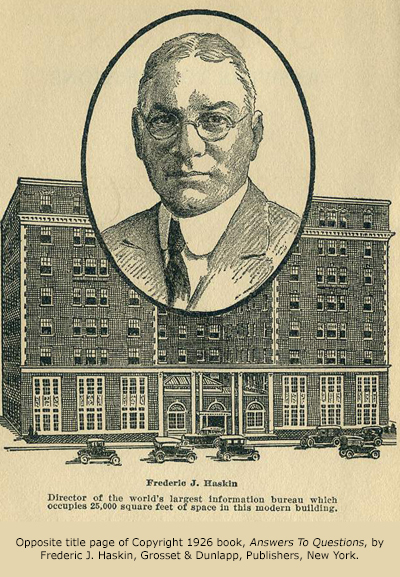
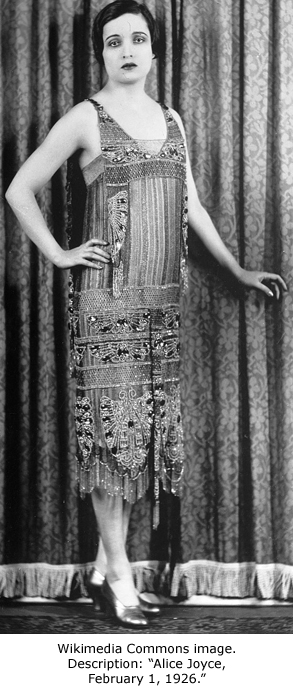
Actress Joyce was born in 1890 and appeared
in dozens of Hollywood films before retiring
from movie-making in 1930.47
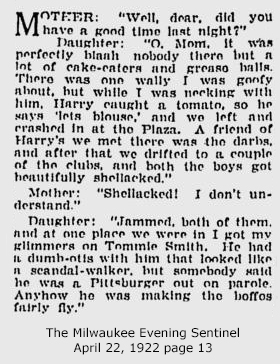
First paragraph of "Fathers and Mothers Must
Learn Flapper Talk to Know What the
Younger Generation are Saying."
Click for complete article.
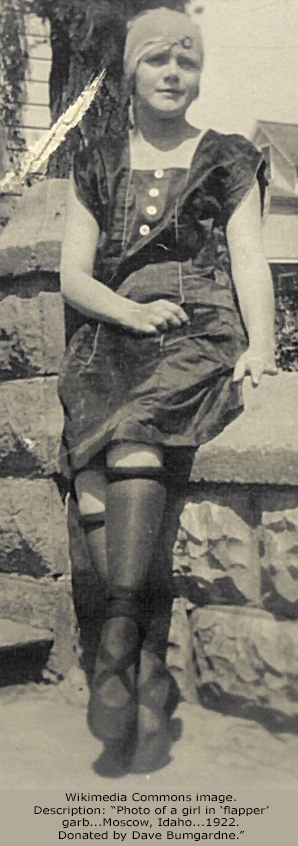
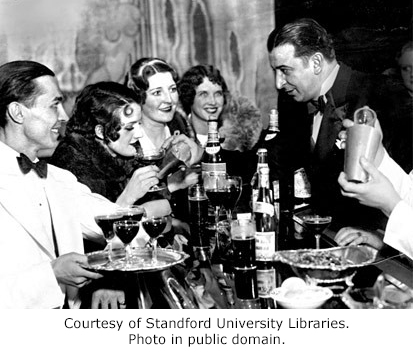
Speakeasy high times.
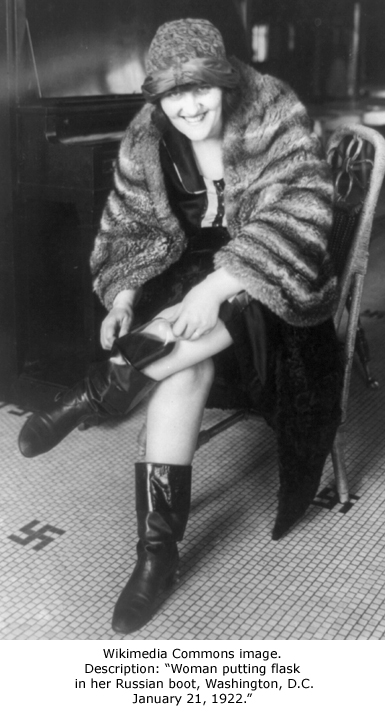
When there's a will (and will seems to be in abundance where in-
toxicants are concerned)... Although some might reasonably
connect the swastika worked into the floor tile with the
Nazis, it actually is an ancient Buddhist-Hindu symbol
defined in Sanskrit as meaning "any lucky or
auspicious object." 48 This is among the
reasons it was appropriated by Hitler.
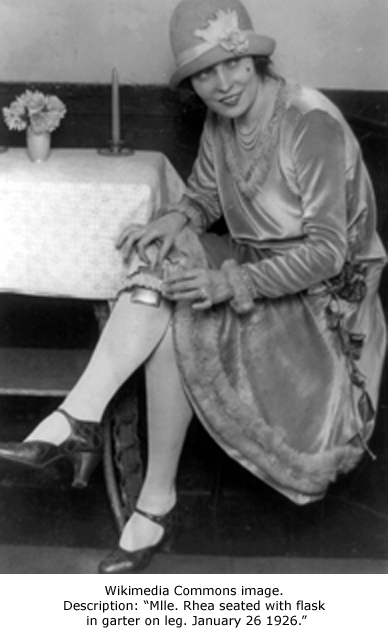
"Mlle." is mademoiselle abbreviated, but otherwise I didn't discover
much about Rhea, including her full name. According to
a website, she was, "...an actress and dancer."49